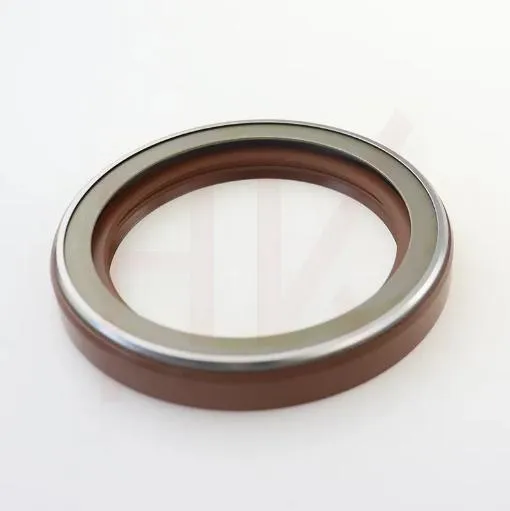Nov . 20, 2024 11:37 Sanawa dolan
Ultimate Guide to Choosing the Right Hydraulic Pump, Cylinder, and Ram Oil Seals
When it comes to maintaining the efficiency and longevity of hydraulic systems, oil seals play a pivotal role. Whether you are working with a hydraulic pump, hydraulic cylinder, or hydraulic ram, choosing the right seal can make a significant difference in performance, reliability, and the lifespan of your equipment. This guide explores the importance of these oil seals and how to make the best choice for your hydraulic applications.

Understanding Hydraulic Pump Oil Seals
A hydraulic pump oil seal is essential for preventing fluid leakage and contamination within the pump. Hydraulic pumps operate under high pressure, and any breach in the sealing system can lead to inefficiencies, damage, or costly repairs. The primary function of a hydraulic pump oil seal is to keep the hydraulic fluid contained within the pump system while preventing external contaminants, such as dirt and water, from entering the mechanism.
When selecting a hydraulic pump oil seal, it’s crucial to consider the material it’s made from. Common materials include nitrile rubber (NBR), fluoroelastomer (FKM), and polyurethane (PU). Each material offers different resistance levels to heat, pressure, and chemical exposure, making it essential to match the seal type with the specific requirements of your hydraulic pump.
The Role of Hydraulic Cylinder Oil Seals
Hydraulic cylinder oil seals serve a similar purpose but are designed specifically for the dynamic environment of hydraulic cylinders. These oil seals are crucial for keeping hydraulic fluid from escaping the cylinder, ensuring that the hydraulic pressure remains stable. Without effective sealing, hydraulic cylinders can lose pressure, resulting in reduced performance and potential equipment failure.
The type of hydraulic cylinder oil seal you choose depends on the operating conditions, such as temperature and pressure ranges. Standard seals might work for low-pressure applications, but for high-pressure or high-temperature conditions, more advanced seals made from resistant materials like Viton or PTFE may be necessary. Ensuring the right fit and seal material is essential for maintaining the integrity of the hydraulic cylinder.
Choosing the Best Hydraulic Ram Oil Seals
Hydraulic ram oil seals are specifically designed to handle the extreme pressure and force exerted within hydraulic rams. In these systems, oil seals prevent fluid leaks while also protecting the ram from dirt and other external contaminants. The seals also serve to prevent excessive wear on the moving parts, thereby extending the life of the hydraulic ram.
Selecting the correct hydraulic ram oil seal requires an understanding of the operating conditions. If the ram operates in a harsh environment, such as one exposed to abrasive particles or chemicals, a seal made from durable materials like Viton or polyurethane may be necessary. For less demanding environments, a nitrile-based oil seal may suffice. Always ensure that the seal’s design is compatible with the ram’s specifications to avoid premature failure or leakage.
Maintenance Tips for Hydraulic Oil Seals
Proper maintenance of hydraulic oil seals can significantly prolong the lifespan of your hydraulic system. Regular inspection is critical to identify any signs of wear, such as cracks, hardening, or deformities in the oil seals. When a seal becomes worn, it loses its ability to contain the hydraulic fluid effectively, which can lead to reduced system pressure and potential damage to other components.
To keep your hydraulic oil seals in top condition, it’s important to maintain a clean operating environment. Dirt, dust, and moisture are enemies of hydraulic systems, and contamination can severely damage oil seals. Using the correct hydraulic fluid and keeping it free from contaminants also helps protect the integrity of the seals. Regular fluid changes and seal inspections should be part of your maintenance routine to ensure optimal performance.
Why Investing in Quality Hydraulic Oil Seals Matters
Investing in high-quality hydraulic oil seals is essential for ensuring the longevity and reliability of your hydraulic systems. While it may be tempting to opt for cheaper alternatives, low-quality oil seals often wear out more quickly, leading to more frequent replacements and potentially costly system failures. Premium oil seals, made from advanced materials and designed for specific applications, offer better resistance to extreme conditions and longer service life.
For those using hydraulic pump oil seals, hydraulic cylinder oil seals, or hydraulic ram oil seals, choosing the right product can mean the difference between smooth operation and costly downtime. Quality seals help maintain hydraulic pressure, reduce the risk of leaks, and protect the system from external contamination, ultimately saving you money in the long run.
In conclusion, the right hydraulic pump oil seal, hydraulic cylinder oil seal, and hydraulic ram oil seal are essential for the performance and durability of your hydraulic systems. By choosing the appropriate seals and maintaining them properly, you can ensure that your machinery operates efficiently and lasts longer. Always prioritize quality and compatibility when selecting oil seals to maximize the lifespan of your equipment.
-
TCN Oil Seal Metal Ring Reinforcement for Heavy Machinery
HabarlarJul.25,2025
-
Rotary Lip Seal Spring-Loaded Design for High-Speed Applications
HabarlarJul.25,2025
-
Hydraulic Cylinder Seals Polyurethane Material for High-Impact Jobs
HabarlarJul.25,2025
-
High Pressure Oil Seal Polyurethane Coating Wear Resistance
HabarlarJul.25,2025
-
Dust Proof Seal Double Lip Design for Construction Equipment
HabarlarJul.25,2025
-
Hub Seal Polyurethane Wear Resistance in Agricultural Vehicles
HabarlarJul.25,2025
-
The Trans-formative Journey of Wheel Hub Oil Seals
HabarlarJun.06,2025
Önüm kategoriýalary
















